Political scientist, Ohio State

Data from the Survey of the Performance of American Elections.
Reposted by Ethan Porter

onlinelibrary.wiley.com/doi/abs/10.1...
(h/t @ethanvporter.bsky.social )

Populism still cuts across partisan lines. Data: @gallup.com Social Series.
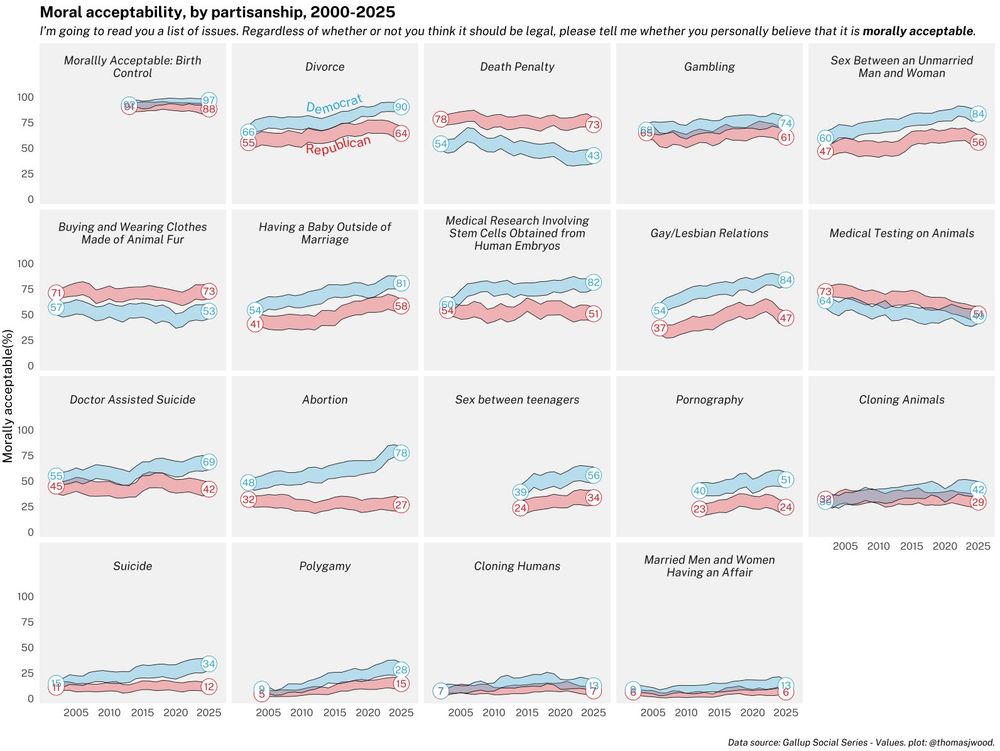
Data from Gallup's Social Series.



Updated estimates here:
Reposted by Joanna Bryson

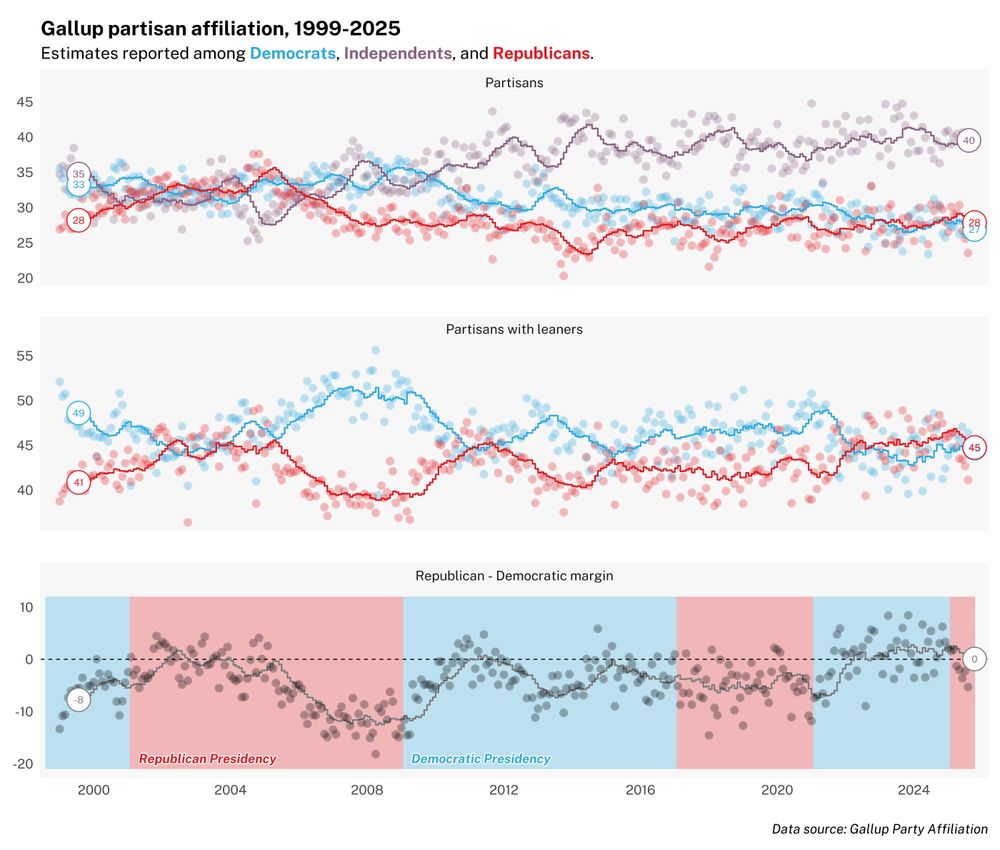
Data from Gallup social series.

Data from the @electionstudies.bsky.social CDF and 2024 timeseries.


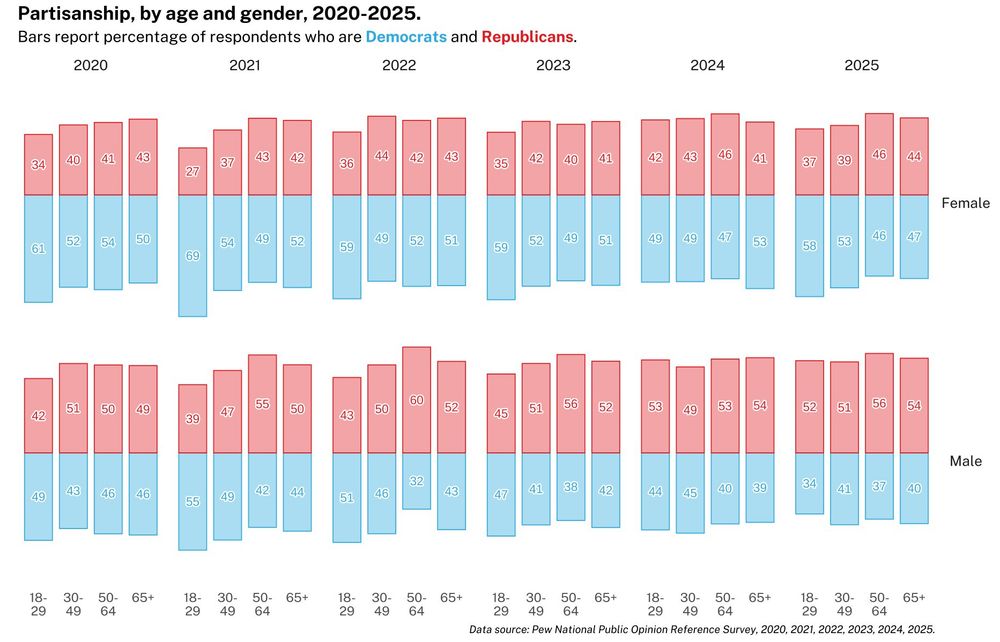
data from the @pewresearch.org 's NPORS study.
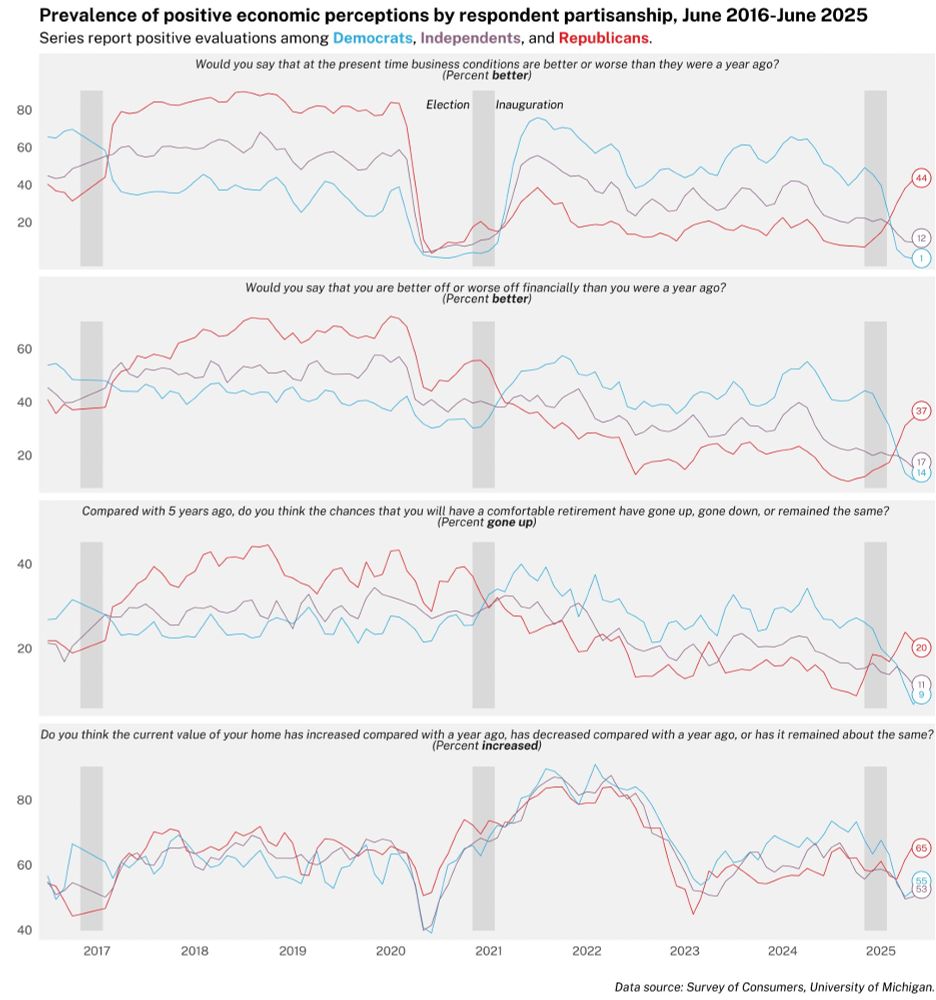
Data from the University of Michigan ISR's (bsky-less?) consumer sentiment survey
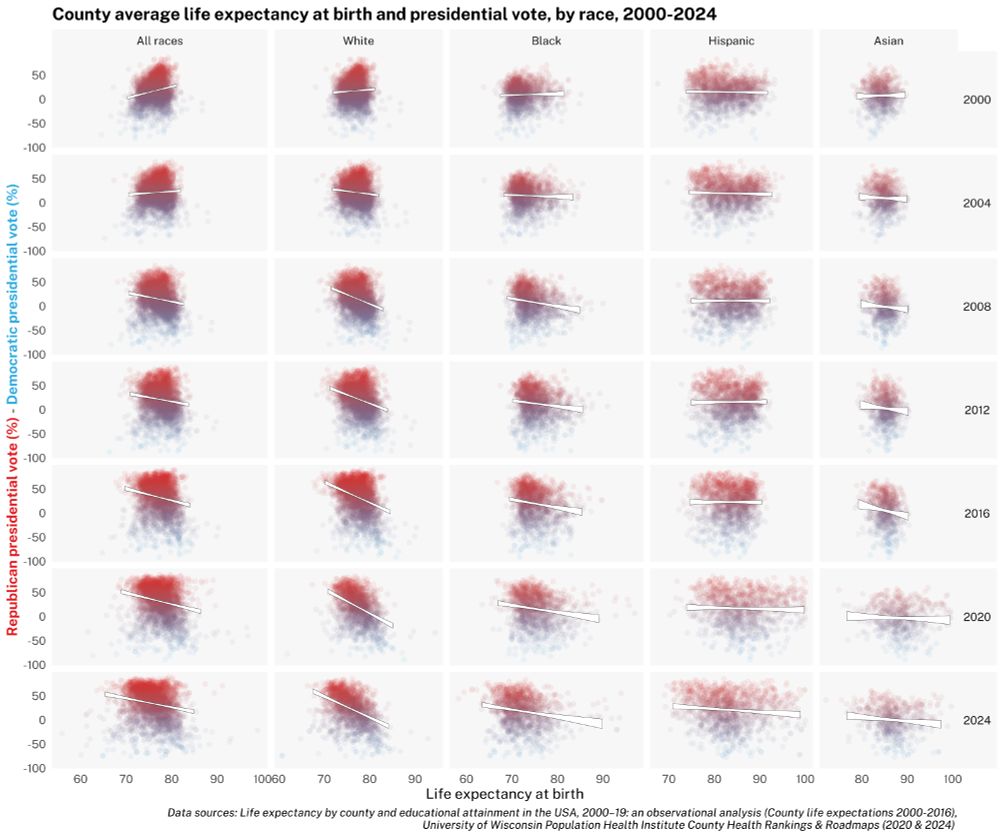
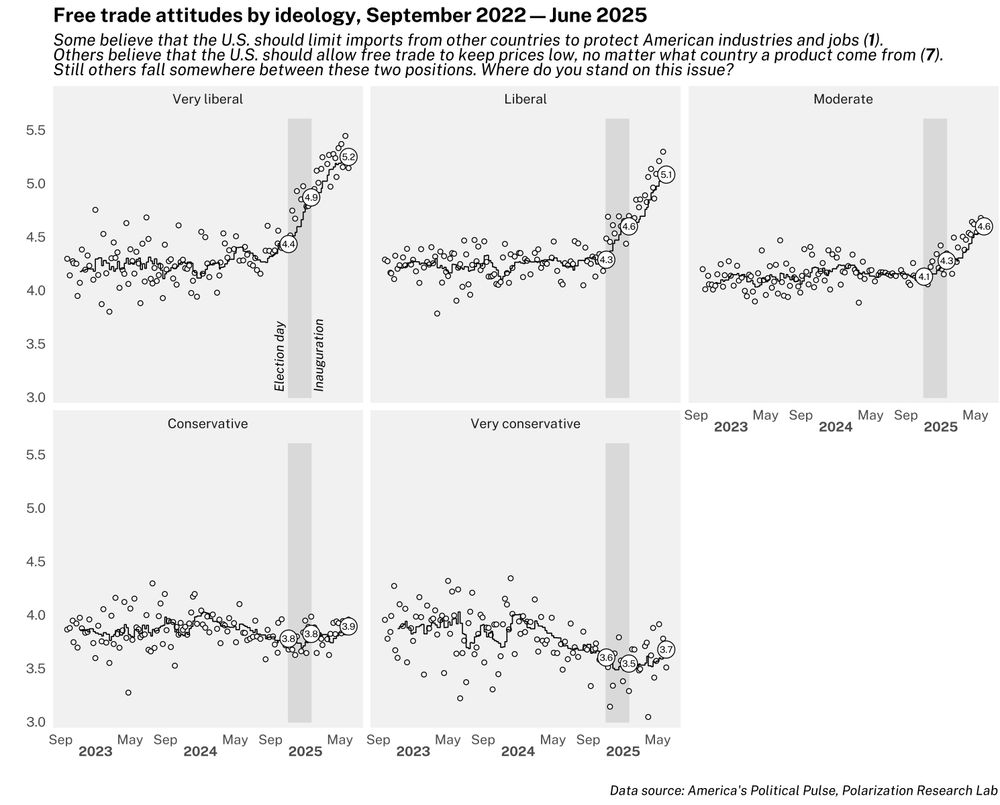
A super interesting case for the role of elites in shaping mass attitudes.
Data from the incredible @prl.bsky.social 's 'America's Political Pulse.'
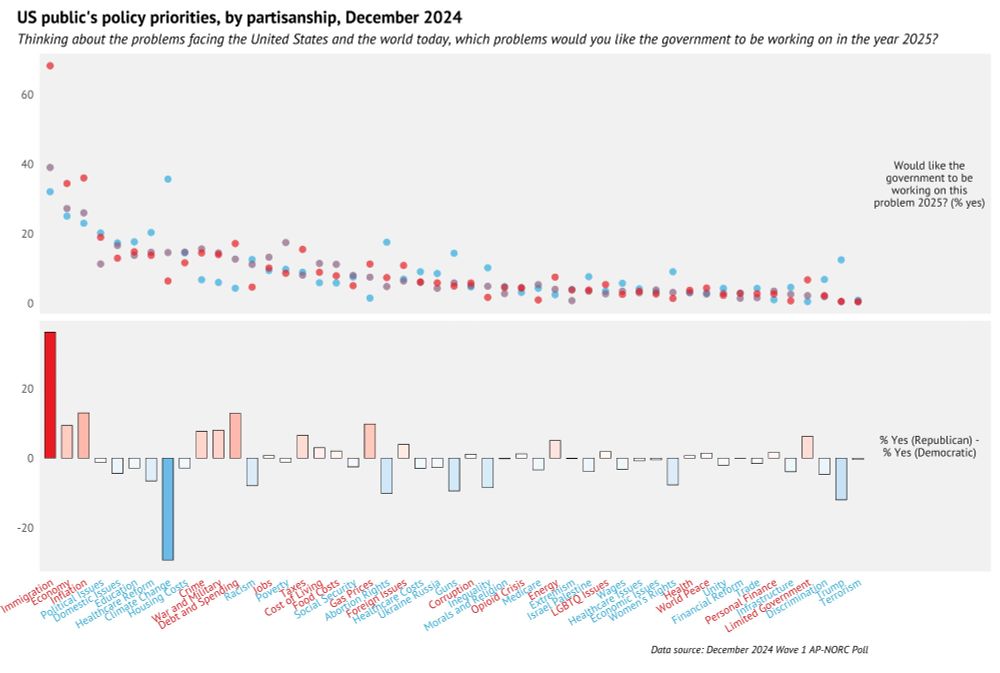
Data from AP-NORC.
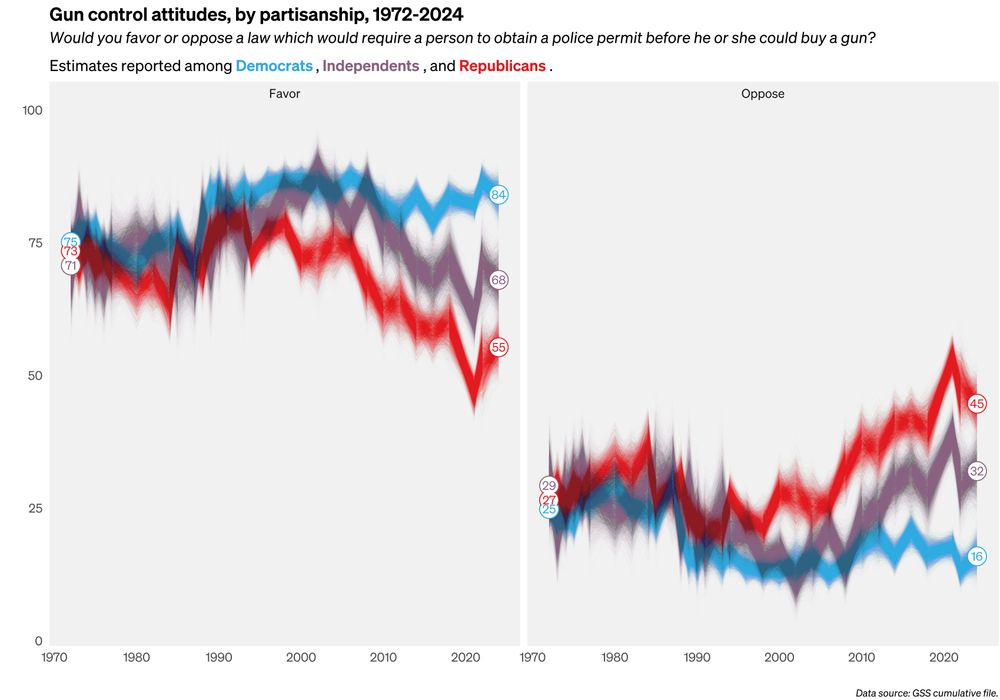
Data from @norc.org
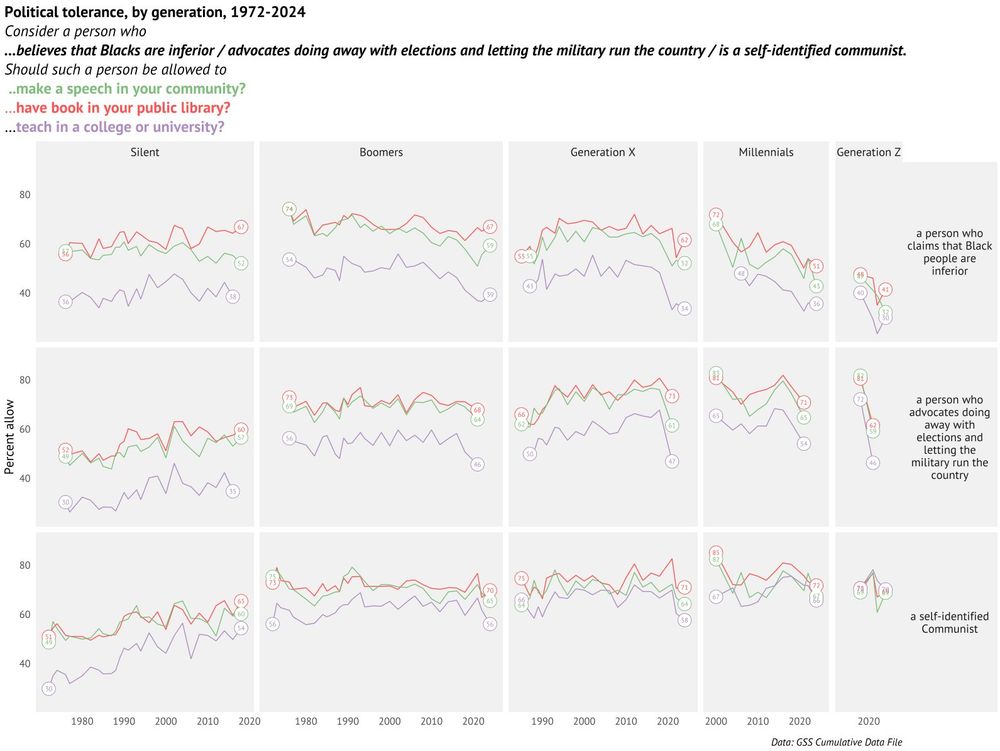
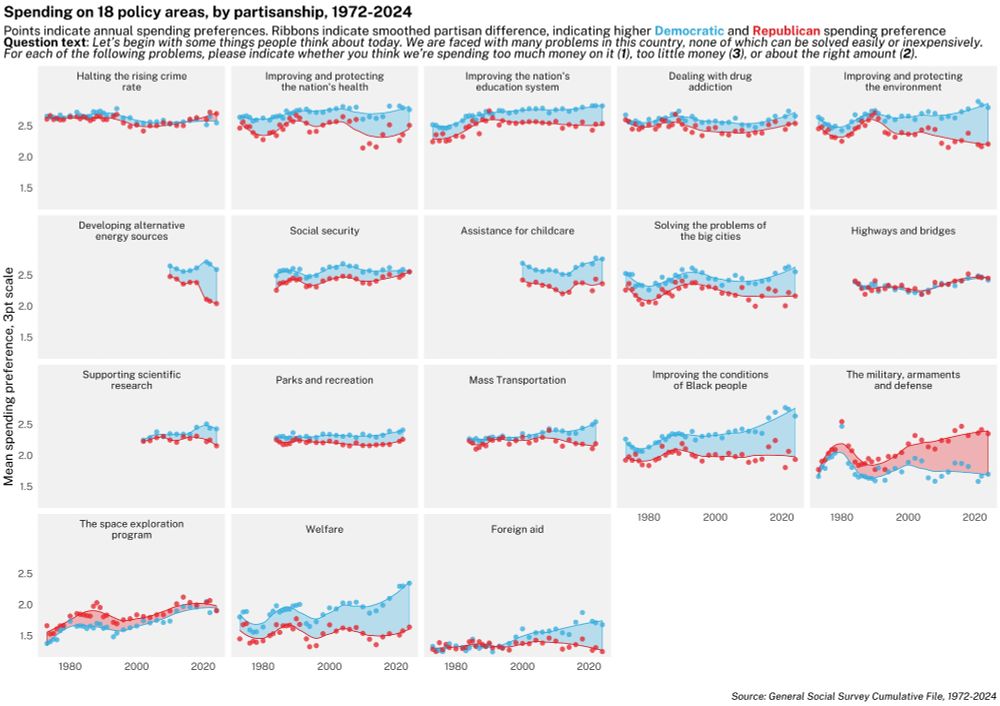
Fascinating that numerous policy areas have seen negligble polarization over this period. Data from @norc.org's GSS
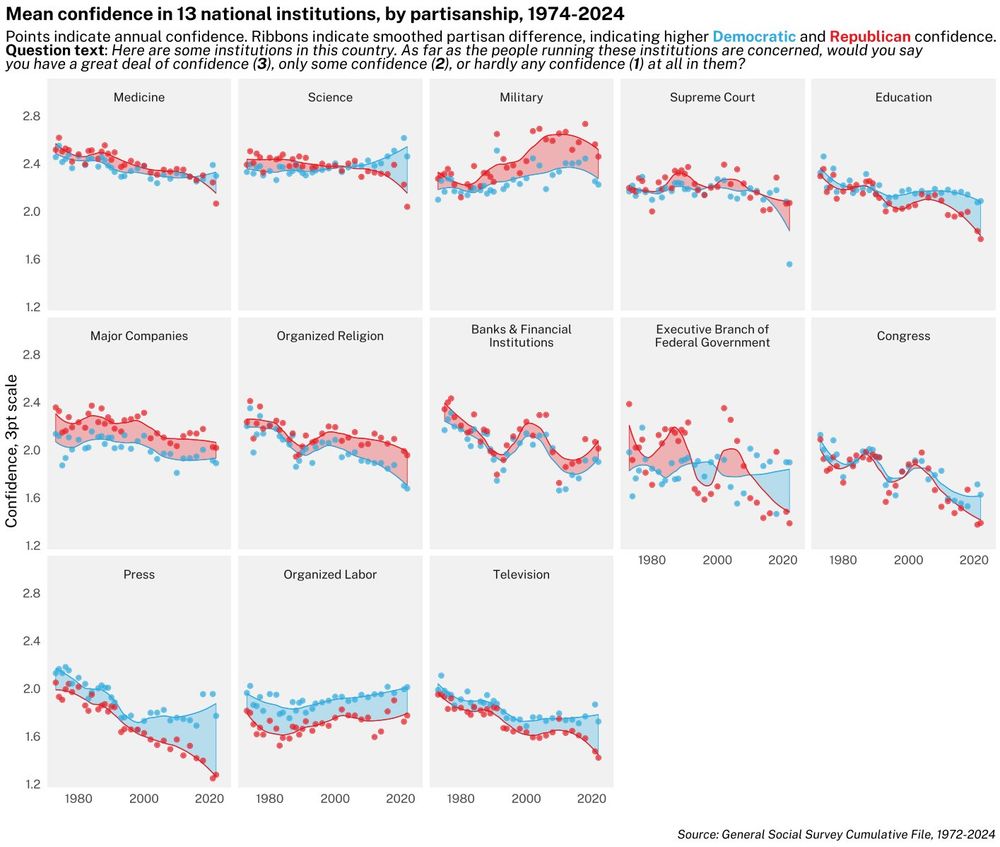
The collapse in Democrats' Supreme Court confidence in 2022-2024 is the largest single year change seen in 50 years. Data from the GSS @norc.org
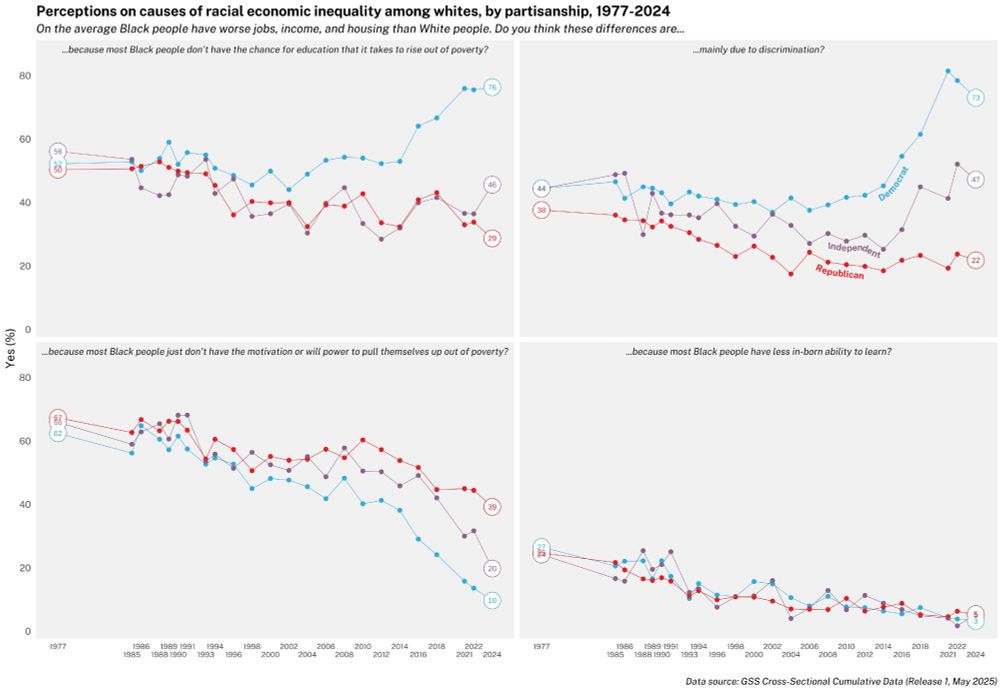

But sure Dems becoming marginally less expansionary in abortion attitudes
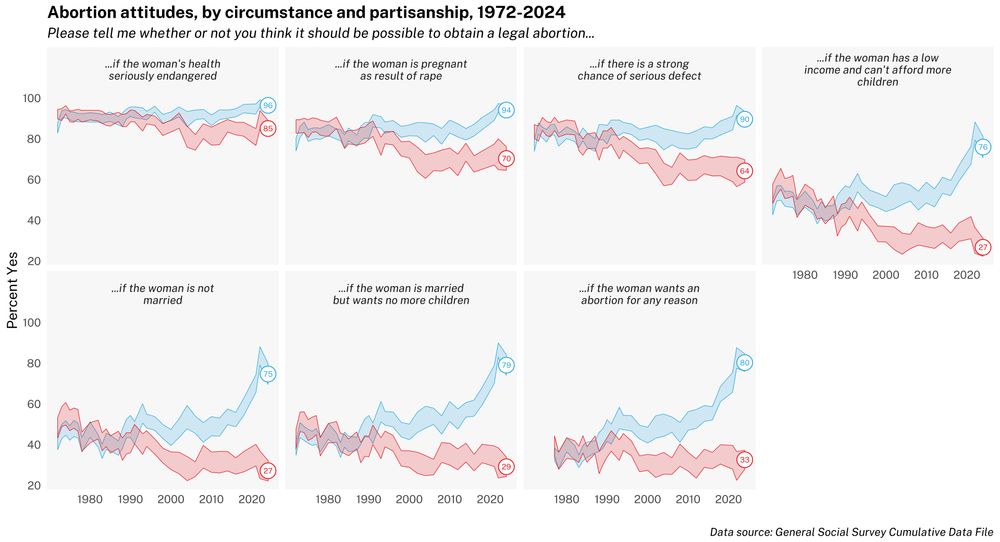
I'm always down for new ways to burnish Chicago's credentials!
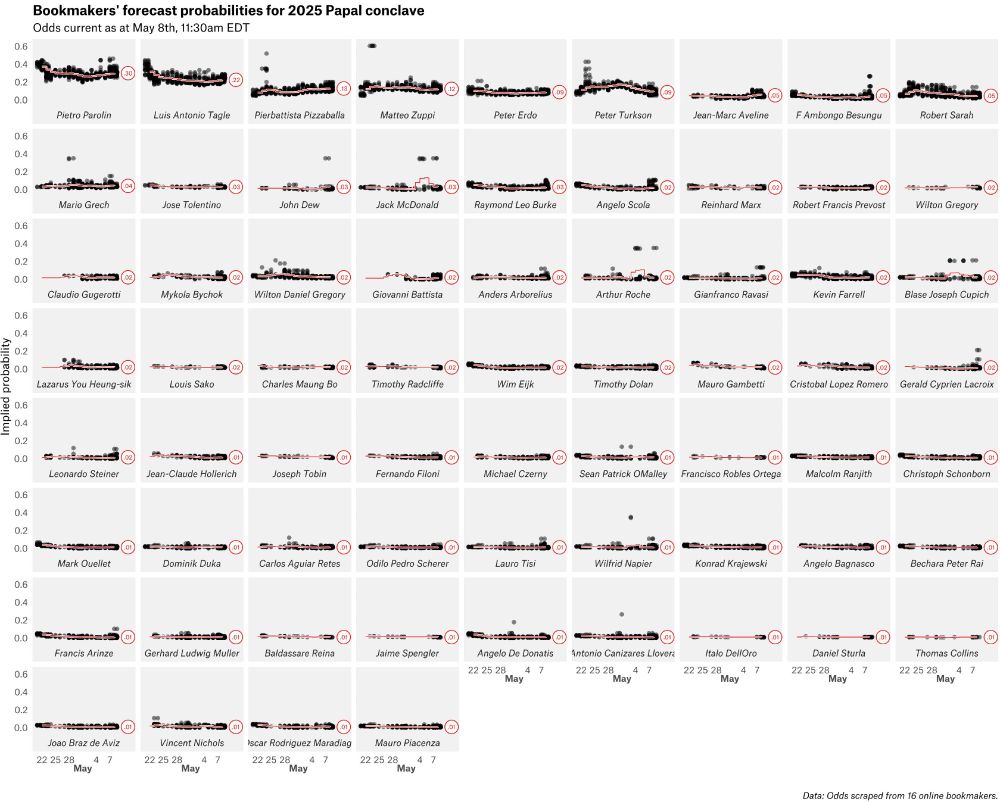
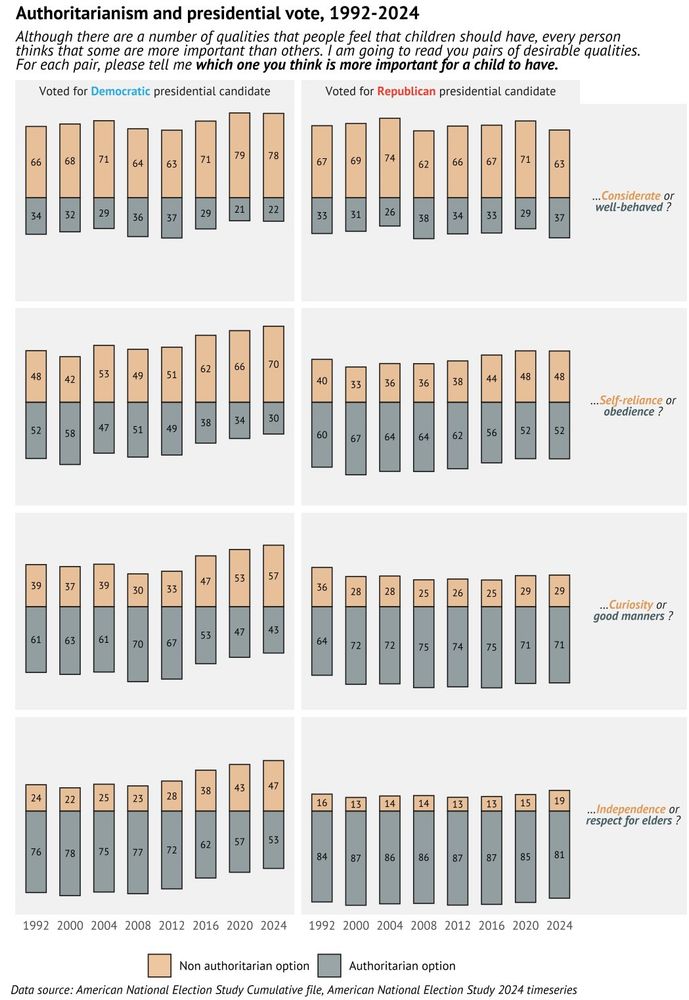
Data from @electionstudies.bsky.social CDF and 2024ts

